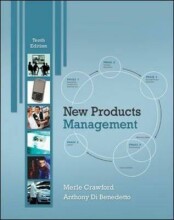Labor relations, fairness and negotiations - Article: The psychology of negotiation - The negotiator as motivated information processor
5 important questions on Labor relations, fairness and negotiations - Article: The psychology of negotiation - The negotiator as motivated information processor
The cognitive heuristics principle to understand exploitation of counterpart:
- Anchoring: leads to inadequately high or low aspirations, and thus deadlock of personal and joint gain (loss framing tends to decrease intergrative agreements)
- Availability:
- Representativeness: the use of stereotypes to interpret and predict the counterparts’ behaviour (reputation)
Another heuristic is fairness to settle disputes:
- Equity
- Equality
- Need, opportunities and historical precedence
The naïve realism principle:
- optimistic overconfidence: can lead disputants to forego attempts at settlement, believing that time is on their side and that victory is just around the corner
- strong tendency for negotiators to engage in confirmation rather than disconfirmation of their initial beliefs
The naïve realism principle: Negotiators make sense of their fuzzy situation by assuming others, including their counterpart, views and things like them --> inadequate assumptions and conclusions about the state of negotiation
- Higher grades + faster learning
- Never study anything twice
- 100% sure, 100% understanding
Epistemic motivation and the deep thinking principle:
People have the choice between two strategies of processing information:
- solve logical problems, to evaluate arguments, or to form impressions of others through a quick, effortless and heuristic processing of information that rests on well-learned prior associations
- Individuals may engage in more effortful, deliberate and systematic processing that involves rule-based inferences
The question on the page originate from the summary of the following study material:
- A unique study and practice tool
- Never study anything twice again
- Get the grades you hope for
- 100% sure, 100% understanding






























